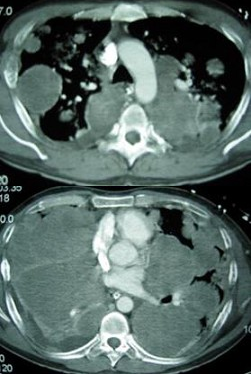When I settled in Chicago,my new city seemed so big and unfriendly.Then I had a ____ problem and had to go to hospital for a ___ examination. It seemed a small ____ compared to the one I was about to face,but things started to go ____ right from the beginning.Not having a car or ____ the city,I was depending on a couple of buses to get me from A to B.___ I'd left myself plenty of time,soon it was ___ I was going to be late,as I had mistakenly boarded a bus that was taking me in the ____ direction. I ___ the bus and stood on the pavement not knowing what to do.I looked into the eyes of a ____,who was trying to get past me.____,instead of moving on,she stopped to ask if I was ____.After I explained my ____ to her,she pointed to a bus stop across the street,where a bus would take me back into the city to my ____.Sitting there waiting,I felt ____ that someone had been willing to help.____,hearing a horn(喇叭)nearby,I looked up to see a car with my new friend ____ at me to get in.She had returned to offer me a ___ to the hospital. Such unexpected ____ from a passerby was a lovely gift to receive.As I climbed out of the car at the hospital and turned to thank her,she smiled and told me not to lose ____,for all things are possible.
|
小题1:A
小题2:D
小题3:B
小题4:A
小题5:C
小题6:A
小题7:C
小题8:D
小题9:C
小题10:C
小题11:B
小题12:C
小题13:D
小题14:A
小题15:B
小题16:B
小题17:C
小题18:A
小题19:C
小题20:B
本文为一篇记叙文。作者讲述了自己初到芝加哥人生地不熟时的一次受人帮助的愉快经历。
小题1:根据下文的“had to go to hospital for a __2__ zexamination”可知,是“身体”出现问题。故a physical problem符合语境。故选A。
答案 A
小题2:作者去医院是进行“全面的检查”,故选D项, thorough“全面的”。
答案 D
小题3: 根据语境可知,作者初到一个陌生的城市,人生地 不熟,显然这对于作者来说是个“挑战”。故选B 项。chance“机会,机遇”;challenge“挑战”;success“成功”;error“错误”。
答案 B
小题4:根据but表示的转折含义以及接下来讲述的故事可知,开始出现问题,不再是小挑战。go wrong“出现问题,遇到困难”,故A项符合语境。
答案 A
小题5:根据语境可知,由于作者没有车,而且对这个城市也不熟悉,所以只能靠乘公交车来往于A地和B地之间。故C项正确。
答案 C
小题6: 句意:尽管“我”留足了时间,但很快“我”就发现自己要迟到了,因为“我”错乘了一辆开往相反方向的公交车。根据语境可知,选A项,although“尽管”。
答案 A
小题7: 根据语境可知,作者很快发现自己乘反了方向,这样显然就不能按时到达。故选C项,it was obvious(to sb)(that)...“显然……”。
答案 C
小题8:参见上题解析。
答案 D
小题9:发现自己坐错了公交车之后,作者下了车,不知如 何是好。故选C项。get off“(使)下车”,符合语境。
答案 C
小题10:作者刚到芝加哥,人生地不熟,再根据最后一段第一句中的a passerby可知,她只是一个素不相识的路人。故C项符合语境。
答案 C
小题11:这个陌生人不是继续走她的路,而是停下来问“我”是不是遇到问题了,这让作者感到很惊讶。故B项正确。
答案 B
小题12:参见上题解析。OK“安然无恙”,符合语境。
答案 C
小题13:作者把自己的情况解释给她听,她指了指路对面的一个站牌,那儿有一班车可以把作者载回芝加哥赴约。根据语境可知D项正确。
答案 D
小题14:根据语境可知,此处指作者去医院做体检与医生的预约,故A项正确。
答案 A
小题15:陌生人主动帮助作者,作者自然是有一种“感激”之情。故B项正确。
答案 B
小题16:随后,“我”听到近处有汽车喇叭声。上下句之间为时间上的先后关系,故选B。
答案 B
小题17:作者抬头看到他的这位新朋友开着一辆车招手示意他上车。wave at sb to do sth“挥手示意某人做某事”。
答案 C
小题18:女士返回来是想让作者“搭便车”。lift“搭便车”,符合语境。
答案 A
小题19:女士先前给作者指了路,让作者感激不尽,现在又返回来,让作者搭便车。这样的来自一位路人的善意是作者收到的一份可爱的礼物。故选C项。
答案 C
小题20:当作者在医院下车转过身来谢谢她时,她微笑着告诉作者不要失去信念,因为一切皆有可能。根据语境可知,B项正确。
答案 B

